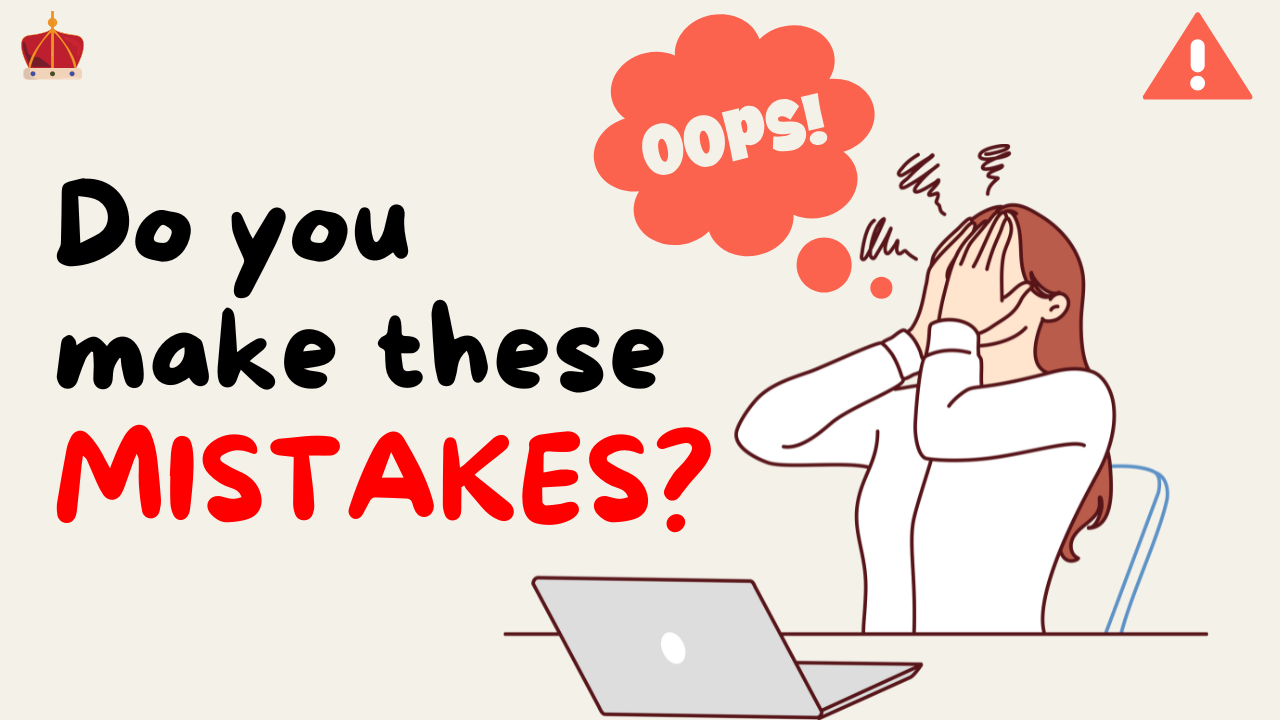
Common English Mistakes and How to Fix Them: Easy Tips for Language Learners
Welcome back to the Easy English Blog! Today, we’re diving into a topic that every English learner faces: common mistakes in English. These are errors many of us make while learning and speaking the language. But don’t worry—we’ll break them down, show you examples, and help you fix them step by step. Whether you’re just starting your journey or have been learning for years, these tips will help you improve your English and avoid these pitfalls. Let’s get started!
Why Do We Make Common English Mistakes?
Mistakes happen because English has its own set of grammar rules, sentence structures, and vocabulary patterns. These might differ greatly from your native language. The good news is that many mistakes are easy to fix once you recognize them. Let’s explore some of the most frequent ones and learn how to avoid them.
Mistake 1: Using the Wrong Prepositions
Prepositions might seem like small words, but they carry a lot of importance. They help us describe time, place, and direction. Here are some common errors with prepositions:
Examples:
- Incorrect: “I’m interested for learning English.”
- Correct: “I’m interested in learning English.”
- Incorrect: “I’ll meet you in Monday.”
- Correct: “I’ll meet you on Monday.”
Rule:
- Use on for days (on Monday).
- Use in for months and years (in November, in 2001).
Tip: Prepositions often follow patterns. By listening to native speakers or reading English regularly, you’ll start to pick up on these patterns naturally.
Mistake 2: Confusing Singular and Plural Forms
English can be tricky when it comes to singular and plural forms, especially if your native language has different rules.
Examples:
- Incorrect: “My friend are coming to the party.”
- Correct: “My friend is coming to the party.”
- Incorrect: “I have two book.”
- Correct: “I have two books.”
Irregular Plurals:
English has words with irregular plurals that don’t follow the usual “add an ‘s’” rule. For example:
- 1 sheep, 3 sheep (not sheeps)
- 1 child, 2 children
Tip: Pay attention to singular and plural forms when writing and speaking. These small changes can make your English sound much more natural.
Mistake 3: Misusing Articles (a, an, the)
Articles are small but powerful words that often trip up English learners.
Rule for a and an:
- Use a before words starting with a consonant sound (a book, a car).
- Use an before words starting with a vowel sound (an apple, an hour).
Rule for the:
- Use the for specific things (I’m going to the park).
- Use a/an for general things (I’m going to a park).
Common Error:
- Incorrect: “The dogs are friendly.”
- Correct: “Dogs are friendly.” (Unless you’re talking about specific dogs.)
Tip: Practice using articles correctly by describing everyday objects or situations.
Mistake 4: Overusing the Word “Very”
The word “very” is easy to overuse, but it can make your English sound repetitive. Instead, try using stronger adjectives to add variety.
Examples:
- Very cold becomes freezing.
- Very hungry becomes starving.
- Very happy becomes overjoyed.
Tip: Use a thesaurus or vocabulary lists to discover richer words and enhance your conversations.
Mistake 5: Translating Directly from Your Native Language
Translating word for word from your native language into English often leads to errors because English has unique grammar and sentence structures.
Examples:
- In some languages, you might say, “I have 30 years.”
- In English, you must say, “I am 30 years old.”
Tip: Learn English phrases and sentences in context rather than memorizing individual words. Try to think in English instead of translating from your native language.
Final Thoughts
Thank you for reading this blog post! These common mistakes are natural parts of the learning process, but with practice, you can avoid them and improve your English. Remember to focus on patterns, context, and expanding your vocabulary to make your language skills stronger and more fluent.
Don’t forget to check out our other posts and resources for more English learning tips. Have a fantastic day, and see you next time!
Vocabulary Definitions
- Prepositions: Words that show the relationship between other words (e.g., on, in, at).
- Irregular Plurals: Words that do not follow the standard rules for making plurals (e.g., child → children).
- Articles: Small words like a, an, and the that define nouns as specific or general.
- Specific: Clearly defined or identified.
- Context: The situation or information around something that helps explain its meaning.

